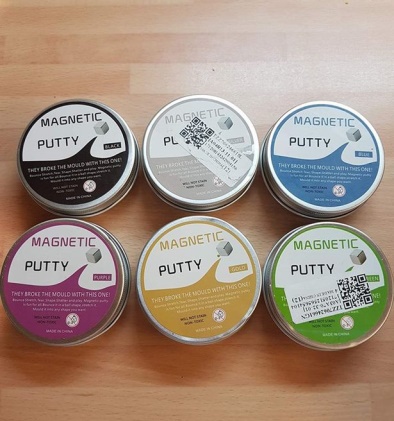When buying a toy for a child, a parent expects the product to be safe. Unfortunately this is not always the case. Parents of a child from Wishaw have found that their daughter has 10 times the safe limit of arsenic in her body after playing with Magnetic Putty which they bought online for her as a Christmas present.
 The Magnetic Putty was removed from the market after Trading Standards issued an alert regarding safety concerns. The trading standards officers found the toy contained twice the amount of lead, seven times the amount of arsenic which is allowed and a magnet which was 29 times the allowed magnetic force – clearly a very dangerous toy for children to be playing with! When the child’s parents saw the warning, they took her to her GP where it was found she had significantly increased levels of arsenic in her system.
The Magnetic Putty was removed from the market after Trading Standards issued an alert regarding safety concerns. The trading standards officers found the toy contained twice the amount of lead, seven times the amount of arsenic which is allowed and a magnet which was 29 times the allowed magnetic force – clearly a very dangerous toy for children to be playing with! When the child’s parents saw the warning, they took her to her GP where it was found she had significantly increased levels of arsenic in her system.
According to media reports, the child’s parents have now sought legal advice regarding their daughter’s injuries. The Magnetic Putty, which was purchased from Amazon, was found to be without CE markings. The CE markings are used to demonstrate compliance with EU regulations and show that a product is safe. The lack of CE markings on the Magnetic Putty suggests that the toy had not undergone the necessary safety testing before being sold to unsuspecting parents. The packaging of the Magnetic Putty does not identify the manufacturer or supplier. When purchasing from a reputable company, such as Amazon, consumers place a certain level of trust in the supplier. In this case, consumers have been let down and a child has been left unwell as a result.
In terms of the legal recourse available to the child under the Consumer Protection Act 1987, a personal who is injured as a result of defective product can recover compensation if the product is found to be defective in some way. In this case, the Magnetic Putty would be considered to be defective on the basis that it contains levels beyond the legal limits and have resulted in the child becoming unwell. In cases such as this, it is necessary to prove that the product was defective and an injury has been sustained as a result. It is not necessary to prove negligence on the part of the supplier or manufacturer.
Ultimately, when a parent purchases a toy for their child, they should be assured that the product is going to be safe and is not going to harm their child.
If you have sustained injuries as a result of a defective product, and want to discuss pursuing a claim for compensation, contact our specialist team on 0800 0891 331.
Blog by Eilish Lindsay, Lawyer


